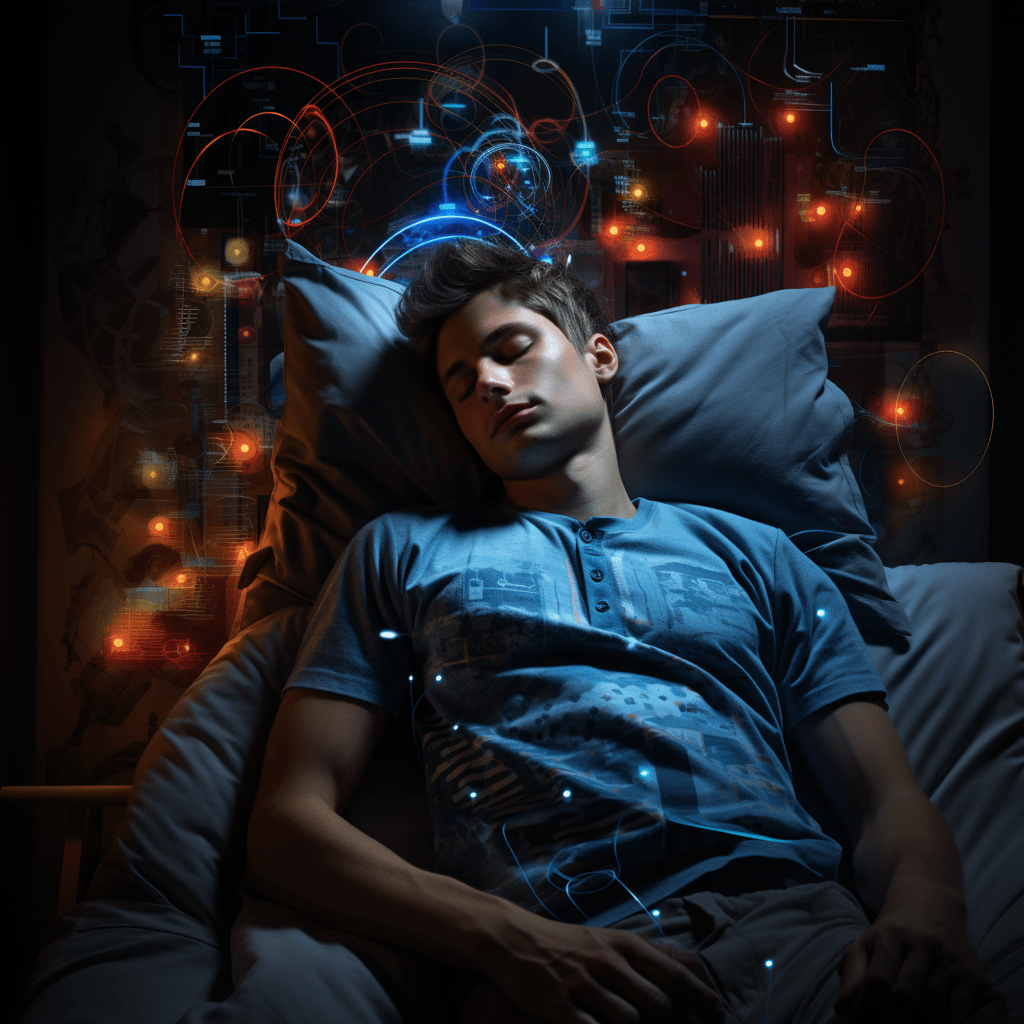Trackception: How Tracking Your Sleep Kills Your Energy

I used to track most things I did.
I tracked how many nutrients I ate with every meal, how often I meditated, and how much I slept.
After all, the saying goes: if you don't track it, you can't improve it.
There's some truth to this.
Tracking what you do, eat, and how long you sleep can make you aware of unconscious patterns or behaviors that fly under the radar.
Once you start tracking you can be surprised by how much sugar you eat, how little deep sleep you get, or how infrequently you meditate. Tracking can be great for fostering an acute awareness of how you behave, what you accomplish, and what problems reappear repeatedly in your life.
When I started to track my sleep, I expected to gain valuable insights into how much REM sleep I've gotten, how often I was awake at night, and how my sleep at night affected my energy levels during the day.
So, I downloaded a sleep-tracking app on my phone, let it run through the night to monitor my sleep, and looked at its recordings after waking up.
At first, this seemed to be exactly what happened.
When I woke up tired, my sleep tracking data helped me realize that I had been waking up constantly throughout the night.
When I woke up energized, my sleep tracking data confirmed that I had been sleeping well, had plenty of REM sleep, and had enough hours under the blanket to wake up refreshed.
But, I noticed that sometimes I'd wake up refreshed and awake only to look at my phone which told me I had spent less than 6 hours in REM sleep and shortly afterward felt like I didn't sleep well at all.
Over time, I realized that tracking my sleep influenced my perception of how well I had slept. If my tracking data showed that I had slept poorly, I felt tired, even if I felt rested before looking at the data.
How Your Perception Affects Your Performance
Today, I came across a study that indicates what I realized a few years ago.
16 people slept for 8 hours one night and 5 hours the next. Upon waking they were informed randomly that they either slept 5 or 8 hours. Those people who were told that they slept 8 hours performed better than those who were informed that they slept 5 hours, regardless of if they slept 5 or 8 hours.
In the words of the study:
"We found that when people perceived that they had slept only 5 h, having actually received 8 h time in bed, their cognitive performance was significantly worse than those who slept 8 h and were ‘informed’ that it was 8 h. Consistent with this finding, we also found that those who slept 5 h but perceived that it was 8 h performed significantly better than those who slept 5 h and thought it was 5 h."[1]
In other words, perceiving that you've slept more than you actually did seems to increase your performance significantly than if you know that you've slept less.
This seems to explain my problem of waking up refreshed but feeling tired and sluggish after seeing that I had only slept 5 or 6 hours on my tracker.
So, tracking your sleep can help you identify problems during sleep like waking up repeatedly, being too hot while sleeping, or simply not getting enough sleep throughout a week.
But, it can also distort your perception of how you feel after you've slept. You can feel more tired than you actually are, question your energy levels after waking up, and even make you more anxious before falling asleep because you aren't sure if you'll sleep the recommended amount of hours you should sleep.
Reclaim Your Sleep: Trust Your Instincts, Not the Tracker
After I learned that tracking my sleep messed up my perception of how well I had slept, I stopped tracking it - even before I knew about the above study.
Immediately, I noticed how hard it was to stop tracking.
After waking up, I instantly craved data to back up how I felt after sleeping.
I realized that this was really messed up. I had learned - or conditioned myself - not to trust my body or feelings on how well I slept. Not having data that told me how well or badly I had slept felt disorienting.
It took a few weeks of sleeping without tracking my sleep again to learn to trust my feelings and stop distorting my perceptions.
Since then, I've noticed that I still stress myself out if I know that it's already late and I might not get my 7:30 hours of sleep that night. So, I also stopped looking at watches before going to bed and kept my phone away from my nightstand so I don't have the desire to look at it when I roll around in bed for what feels like 1-2 hours at night.
Not tracking my sleep, not looking at a watch when going to bed, and keeping my phone away from my bed at night helped me sleep much better than tracking my sleep.
So, if you tend to worry a lot about how much you sleep, notice that tracking your sleep makes you distrust your own feelings, or feel the need to regularly check how late it is when you can't fall asleep at night it might be best to do the same.
